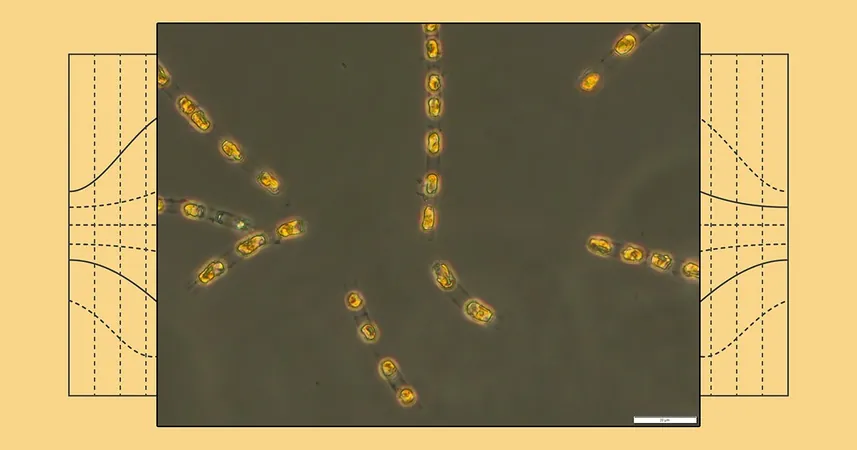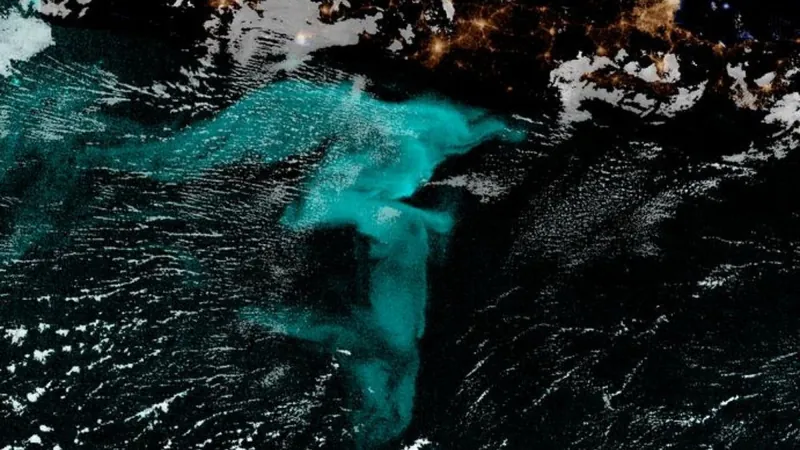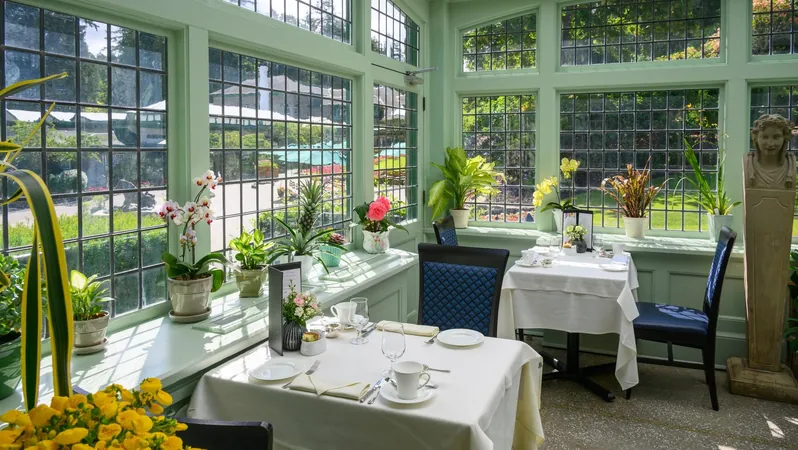
7,000-Year-Old Algae Revived from the Depths of the Baltic Sea!
2025-04-13
Author: Charlotte
Scientists Unlock Ancient Secrets in a Stunning Breakthrough
In an extraordinary feat of modern science, researchers in Germany have successfully revived algae cells that lay dormant for over 7,000 years at the bottom of the Baltic Sea. These remarkable organisms had been trapped beneath layers of sediment, surviving in a world devoid of light and oxygen.
After conducting their groundbreaking study published in The ISME Journal, the team reported an astonishing recovery. The revived algae not only resumed their oxygen production but also began to multiply as if no time had passed at all!
Unprecedented Insights into 'Resurrection Ecology'
This remarkable revival marks a first in the realm of 'resurrection ecology,' shedding light on the potential of ancient life forms. Lead author Sarah Bolius from the Leibniz Institute for Baltic Sea Research expressed her amazement that these ancient algae had preserved their biological prowess over millennia. "They grow, divide, and photosynthesize just like their modern counterparts," she stated.
Nature's Survival Strategy: Dormancy at Its Best
How did these algae manage to withstand such extreme conditions? Similar to how some mammals enter hibernation to survive harsh climates, these algae can enter a dormant state, significantly lowering their metabolism and conserving resources. In the Baltimore Sea, specific conditions allow these resilient phytoplankton to survive far longer than typical dormancy would permit.
Exploring a Time Capsule Beneath the Waves
The researchers extracted samples from an astonishing depth of nearly 800 feet in the Eastern Gotland Deep, an area recognized for its anoxic conditions—virtually void of oxygen. This lack of oxygen prevents decomposition, while the seafloor shields the dormant algae from harmful sunlight.
The study revealed that algae from nine different samples were reanimated, with the oldest estimated to be 6,871 years old. The deposits act as a time capsule, providing invaluable insights into ancient ecosystems, their biological inhabitants, and their evolutionary changes.
A Step Toward Understanding Our Planet’s History
Bolius emphasized the potential of these revived organisms to unveil secrets of the past environments they thrived in, including the conditions of salinity, oxygen, and temperature. This pioneering work in 'Resurrection Ecology' sets the stage for future 'time-jump experiments' in the lab, allowing scientists to explore various epochs in the Baltic Sea's history.
What Lies Below: The Future of Oceanic Research?
This transformative discovery not only enriches our understanding of marine life and its resilience but opens doors to new investigative pathways. Imagine what other ancient secrets the ocean still holds!









 Brasil (PT)
Brasil (PT)
 Canada (EN)
Canada (EN)
 Chile (ES)
Chile (ES)
 Česko (CS)
Česko (CS)
 대한민국 (KO)
대한민국 (KO)
 España (ES)
España (ES)
 France (FR)
France (FR)
 Hong Kong (EN)
Hong Kong (EN)
 Italia (IT)
Italia (IT)
 日本 (JA)
日本 (JA)
 Magyarország (HU)
Magyarország (HU)
 Norge (NO)
Norge (NO)
 Polska (PL)
Polska (PL)
 Schweiz (DE)
Schweiz (DE)
 Singapore (EN)
Singapore (EN)
 Sverige (SV)
Sverige (SV)
 Suomi (FI)
Suomi (FI)
 Türkiye (TR)
Türkiye (TR)
 الإمارات العربية المتحدة (AR)
الإمارات العربية المتحدة (AR)